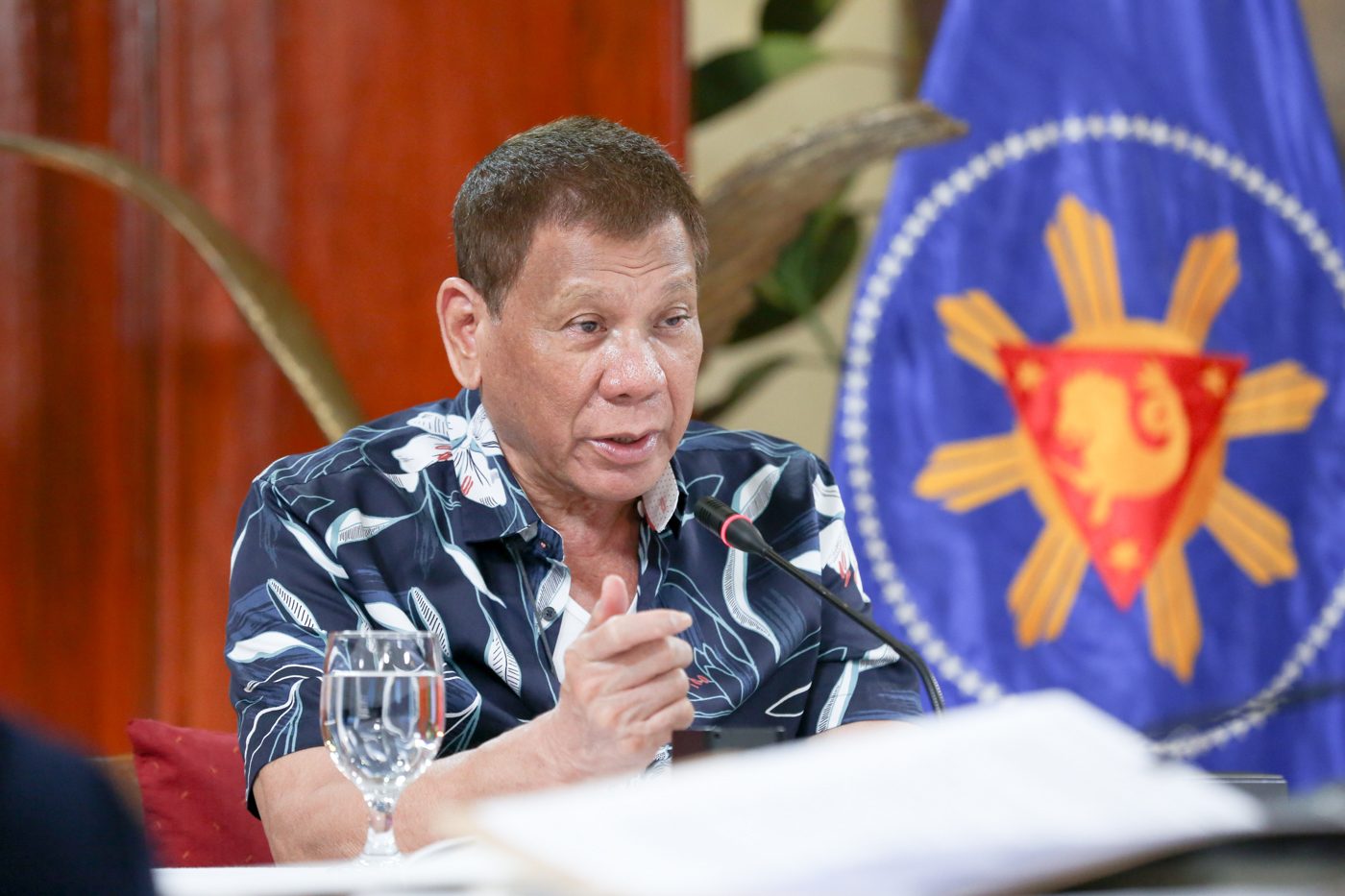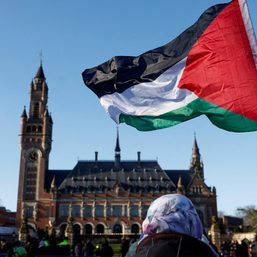SUMMARY
This is AI generated summarization, which may have errors. For context, always refer to the full article.

International human rights groups on Wednesday, October 7, expressed disappointment over the failure of the United Nations Human Rights Council (UNHRC) to launch an independent investigation into the widespread killings and abuse under President Rodrigo Duterte.
The UNHRC adopted a resolution which offers the Philippine government “technical assistance” to address the situation in the country. It also calls for cooperation between the Duterte administration and UN bodies.
Despite their disappointment, Human Rights Watch (HRW) deputy UN director Laila Matar emphasized that the resolution makes it also clear that the Duterte government is “not off the hook and will face continued examination.”
“The adopted resolution means the Duterte administration cannot escape scrutiny for its egregious violations,” Matar said.
“If anything, with the Philippines on the agenda for the next two years, the HRC retains the means to take more robust action, depending on whether the government keeps its word to respect human rights,” she added.
Under the resolution, the office of UN rights chief Michelle Bachelet will engage with the Duterte government to assist its domestic measures, data gathering, and human rights-based approaches to drug control, among others.
The UN rights office is also expected to monitor and submit a report to the council regarding the implementation of the resolution in the Philippines.
‘Missed opportunity’
Amnesty International, meanwhile, said that the ball is now on the court of the Philippines to see an end to the violent situation in the country.
“The decision to keep the Philippines on the Council’s agenda sends a clear message to the Duterte administration that the international community is still watching,” Rachel Chhoa-Howard, Amnesty International’s Philippines researcher, said.
“While the government’s tactics to delay an international investigation may have worked this time, the moment will come when justice will be done,” she added.
Amnesty International called the resolution a “missed opportunity to seek justice for thousands of unlawful killings,” adding that what’s needed is a full international investigation.
“The human rights situation in the Philippines warrants more than just ‘technical assistance’ from the UN,” Chhoa-Howard, said.
Continued monitoring
The HRW said that the resolution failed to “reflect the gravity of the situation on the ground” or the report of Bachelet which stated that local systems have so far failed to exact accountability for the killings.
“States at the UNHRC should follow-up and ensure an international investigation is launched in the event that the killings and crackdown on civil society does not end,” Matar added.
Figures from the Philippine National Police show that there have been 7,884 deaths during police operations from July 1, 2016 to August 31, 2020. Groups estimate the total number of fatalities in the drug war to have reached more than 27,000 already, to include victims of vigilante-style killings. (READ: The Impunity Series)
The drug-related killings exist alongside the high number of attacks and intimidation against human rights defenders, members of civil society organizations, and media, among others.
If “no radical improvement” would be recorded in the near future, Amnesty’s Chhoa-Howard said that UNHRC member-states have the responsibility to launch a full international investigation.
“These states face a credibility test: How will they respond if the bloody wave of killings continue, and the brutal crackdown on civil society and the media rages on?” she said.
‘Lies’
The International Coalition for Human Rights in the Philippines (ICHRP), meanwhile, hopes stakeholders such as the UN rights office and the UN resident country coordinator will closely follow the implementation of the resolution.
It also hit the Duterte government for allegedly presenting lies to the UNHRC.
“We have come to a point where the Philippines has gained global notoriety for human rights abuses,” ICHRP chairperson Peter Murphy said in a statement.
“However, we are dismayed with how disinformation and empty promises were peddled by the Philippine government before the UN body.” ICHRP is referring to the Philippine Human Rights Situationer which many groups hit for misrepresenting what’s happening on the ground.
According to Murphy, the report “resorted to red-tagging and a language of vitriol that aims to discredit victims, their families calling for justice, and civil society.” – Rappler.com
Add a comment
How does this make you feel?
![[OPINION] Rodrigo Duterte and his ‘unconditional love’ for China](https://www.rappler.com/tachyon/2024/04/rodrigo-duterte-xi-jinping-august-2019.jpeg?resize=257%2C257&crop=91px%2C0px%2C900px%2C900px)



![[The Slingshot] Lito Patay’s 4 hours and 38 minutes of infamy](https://www.rappler.com/tachyon/2024/07/Lito-Patay-4-hours-infamy-July-19-2024.jpg?resize=257%2C257&crop=233px%2C0px%2C720px%2C720px)








There are no comments yet. Add your comment to start the conversation.